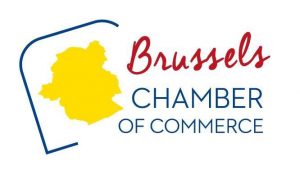This year, the EU celebrates the 30th anniversary of its Single Market – one of the major achievements of European integration, and one of its key drivers. Established on 1 January 1993, the European Single Market allows goods, services, people and capital to move around the EU freely, making life easier for people and opening up new opportunities for businesses.
Since its creation in 1993, the single market has helped to make everyday life easier for people and businesses, fuelling jobs and growth across the EU. It is one of the EU’s greatest achievements.
What are the key benefits for businesses?
- Creates new opportunities for people and businesses
- The single market gives people the chance to travel and work around the EU and allows goods, services and money to move around almost as freely as within a single country. This has become an integral part of European life. These opportunities create more choice of products and services for consumers all around the EU.
- Set common values and standards
- A well-functioning single market requires everyone to play by the same rules. That’s why consumers can trust that the products and services they buy across the EU are safe and meet agreed performance requirements; and that companies respect rules on labour and environmental protection. The single market also helps us to project these high standards and values globally.
- Help businesses grow and weather difficult time
- The single market helps companies, especially small ones, to attract investments to grow across the EU and globally. It also protects companies from possible shocks to their supply chains, by making it easier for them to find new suppliers and partners. In this way, the single market helped companies to connect and overcome difficulties like the recent COVID-19 pandemic, enabling Europe to deliver life-saving vaccines and lead the global response to the crisis.
- Support finding solutions to new challenges
- The single market is Europe’s best answer to help tackle the impacts of climate change, develop a more sustainable and circular economy and society and take full advantage of the digital revolution. It allows for the scaling of innovative solutions across the continent and helps Europe to secure access to new technologies, critical raw materials and clean energy as well as infrastructure, financing and skills needed for this transition.
What are the key achievements of the Single market for businesses?
- Making business easier for SMEs – a network of national portals, available through Your Europe, provides information for businesses and the general public on how EU rules are applied in each EU country for cross-border users, as well as on available assistance services. The system should soon allow for the completion of many administrative procedures fully online, in all EU countries.
- Timely payments – EU rules ensure that public authorities remunerate businesses for the products and services they provide in a timely manner. To further discourage a culture of late payments, current rules will be strengthened, especially to protect SMEs and the most vulnerable businesses.
- Public procurement – EU rules ensure that tenders by public authorities are open and transparent. Public authorities are also encouraged to procure innovative, cleaner and more digital products and services, for instance by opting for cleaner vehicles in public transport.
- Unitary patent – after years of negotiations, companies will soon be able to protect their intellectual property by registering for a single, unitary European patent. The new system will also make it easier to enforce companies’ rights in court, and overall make it simpler and cheaper for companies to protect their innovations.
- Critical inputs and technologies – businesses need essential inputs like critical raw materials or key technologies like semiconductors to help advance our economy’s greening and digitalisation. Thanks to the Single Market, Europe is working on reducing our dependencies on non-EU countries, including through the upcoming Critical Raw Materials Act, by diversifying supplies, increasing production in Europe and supporting recycling.
Today, the single market continues to be the driving force for the EU to address new challenges. It can help find solutions to tackle climate change, build up a clean and secure energy supply, and support the digitalisation of our economy. The single market is also the backbone of Europe’s resilience, allowing it to emerge stronger from the COVID-19 pandemic and the current energy crisis by helping companies diversify their supply chains and find new business opportunities.





